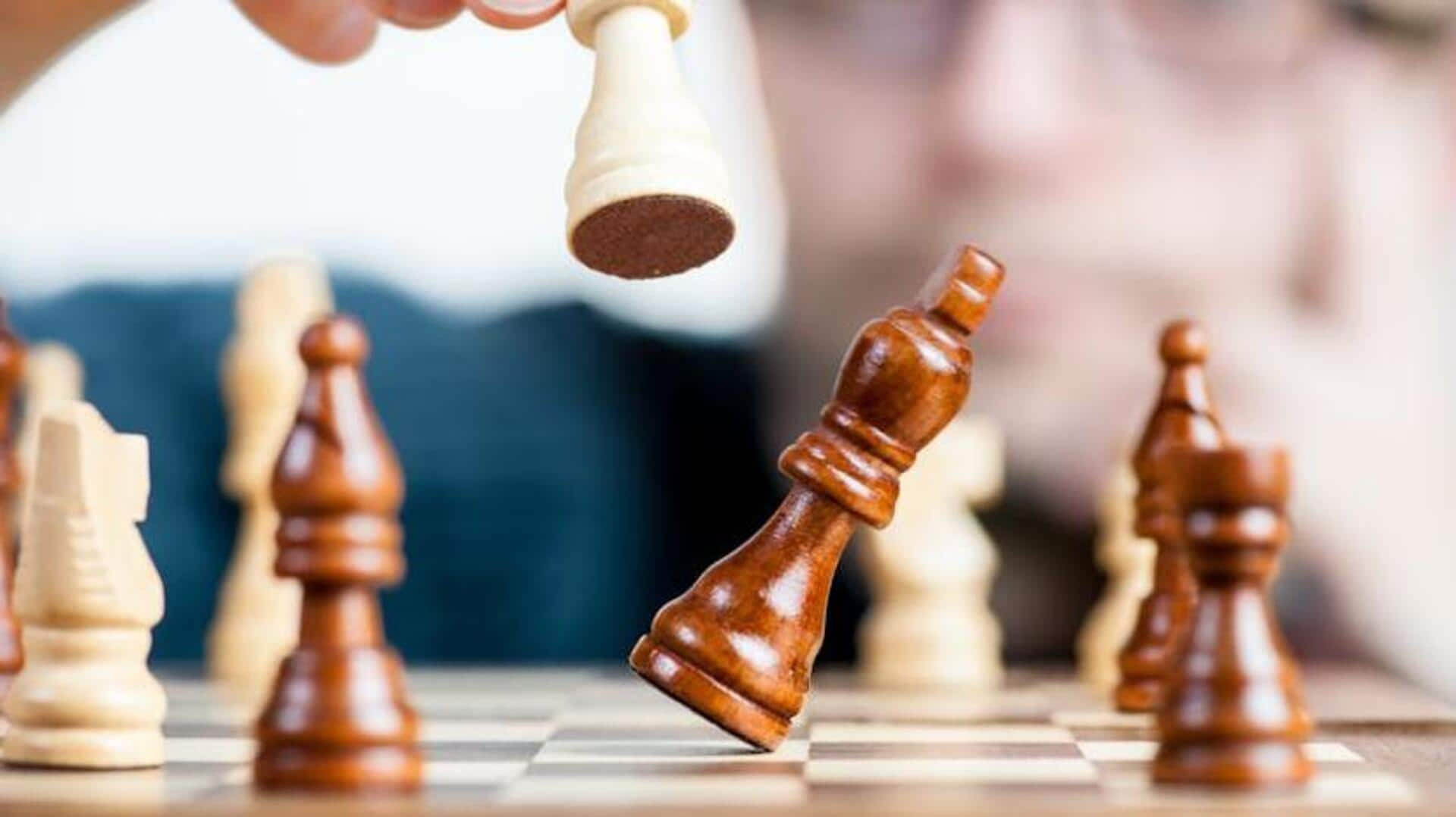
Master chess like a pro. Here's how
What's the story
Chess, the ultimate game of strategy and intellect, has captivated minds for hundreds of years. Becoming a pro involves grasping the principles, dedicating time to practice, and learning from every match. This article offers a deep dive into mastering chess, with a focus on the secret strategies of the pros.
Basics
Understand the basics thoroughly
Before you jump into learning complicated strategies, make sure you have a strong grasp on the basics. This includes knowing how each chess piece moves on the board, understanding the concepts of check and checkmate, and learning basic opening principles. Take plenty of time to play practice games focusing on these fundamental aspects. This foundation is crucial for later building advanced strategies and improving your overall game.
Analysis
Study famous games
One of the best ways to get better is by studying famous chess games. Analyze games played by grandmasters to understand their strategies and thought processes. Pay attention to their opening choices, middle-game tactics, and endgame techniques. This will help you recognize patterns and apply similar strategies in your own games.
Practice
Practice regularly with varied opponents
Consistent practice is the key to becoming a proficient chess player. You should strive to play regularly against a diverse range of opponents with varying skill levels. Competing against stronger players is especially advantageous, as it pushes you to up your game and learn from your mistakes. This not only hones your strategic thinking but also improves your adaptability, ultimately making you a well-rounded player on the chessboard.
Tactics
Embrace tactical training
Tactical training should be the bread and butter of your chess study routine. Make it a habit to solve tactical puzzles every day, either through online platforms or chess books. This builds your pattern recognition, training you to spot and exploit opportunities during games. It hones your ability to quickly identify threats and opportunities, dramatically improving your tactical prowess on the chessboard.
Reflection
Learn from your games
After each game, regardless of win or loss, always allocate time for a detailed post-game analysis. Actively pinpoint where errors occurred or where stronger moves could have been played. This practice of learning from your own games is crucial for growth. It helps polish your strategies over time, fostering a deeper comprehension of both your strengths and areas for improvement.